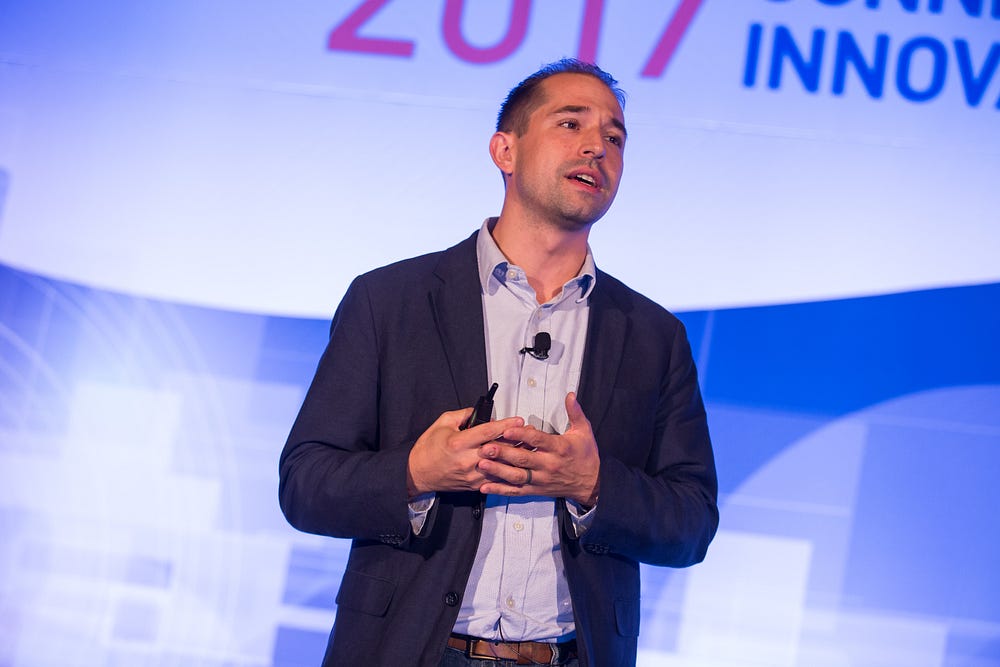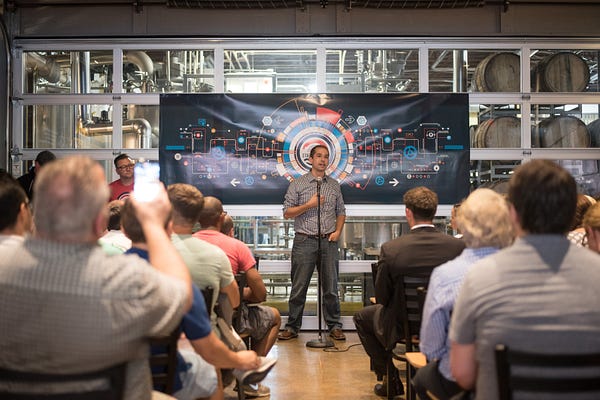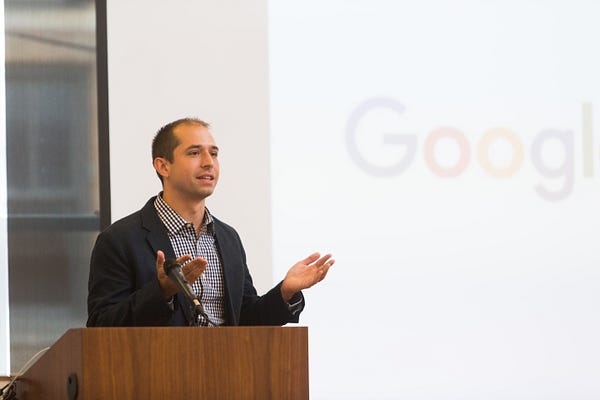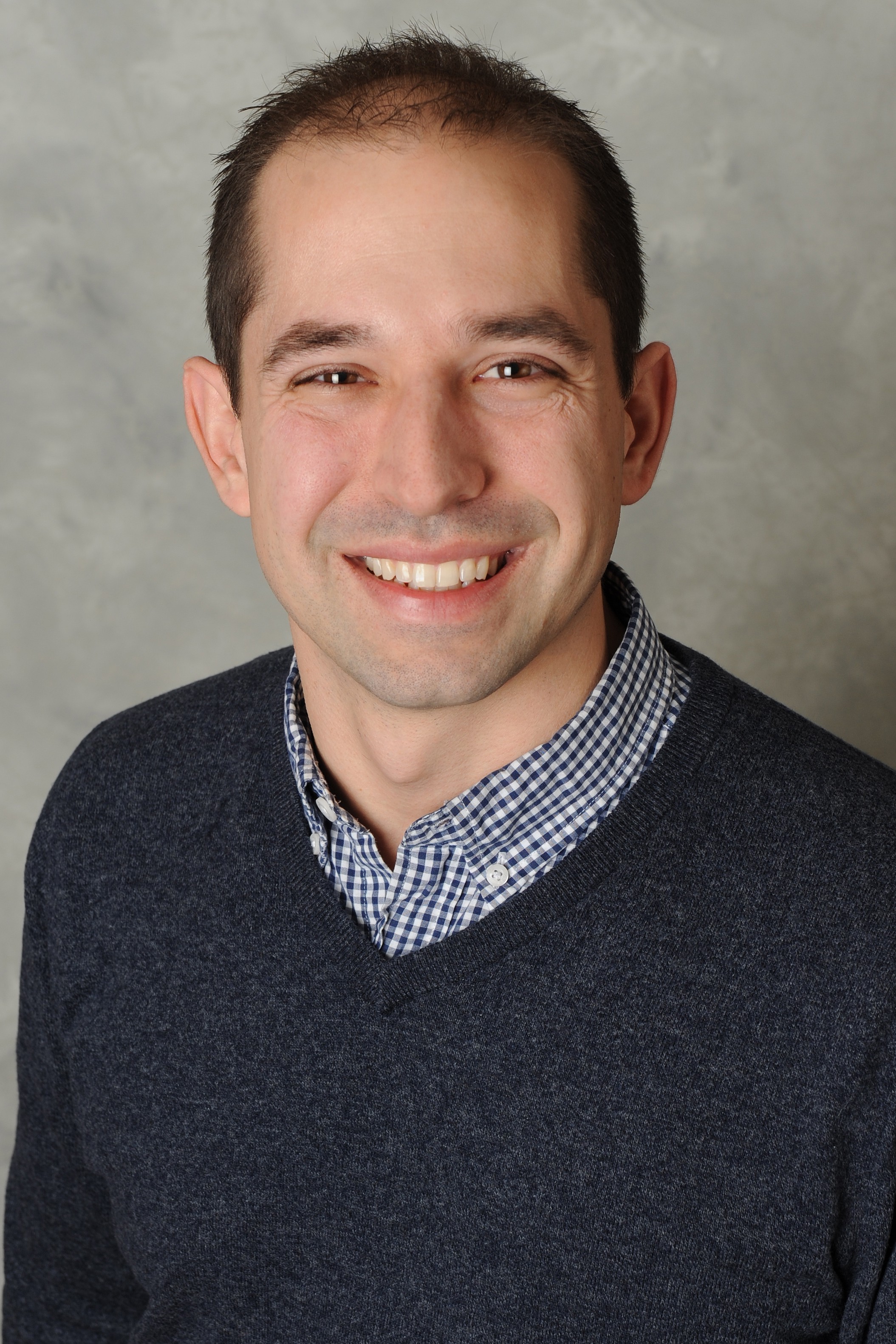Eat a meal alone: My wife thinks I’m crazy on this one but try to go out to eat on your own at a restaurant during a business trip. This alone time can be a great place to slow down and think about a problem you are trying to solve.
As a part of my series about “How to Slow Down To Do More” I had the pleasure to interview Dave Knox. Dave is a leading consultant, speaker, and coach in the areas of innovation, marketing, and digital transformation. He’s been asked to share his expertise by some of the world’s largest companies and most innovative startups. Dave blends classical brand marketing acumen with entrepreneurial instinct to navigate a changing corporate landscape. He is recognized throughout the industry as an innovator who bridges the worlds between brand marketing, digital, and entrepreneurship. As Chief Marketing Officer of Rockfish, Dave helped the company become one of the fastest- growing agencies in the country, going from $8 million in 2010 to $70+ million in revenue in 2016. Simultaneously, Dave co-founded The Brandery, one of the top 10 startup accelerators in the US. Combining these two worlds, Dave is also the author of the bestselling Predicting the Turn: The High Stakes Game of Business Between Startups and Blue Chips.
Thank you so much for joining us! Can you tell us the “backstory” about what brought you to this specific career path?
My journey into a career in digital marketing started during college when I had a chance to intern at Aware Records in Chicago. While Aware was the music label for bands like John Mayer, Train, and Five for Fighting, they also had an online store. This was in the summer of 2001, just as the Dot Com Bubble was introducing us to the first wave of eCommerce. I became fascinated with the opportunity for digital to be both a new channel for marketing, as well as a new business model.
According to a 2006 Pew Research Report report, 26% of women and 21% of men feel that they are “always rushed”. Has it always been this way? Can you give a few reasons regarding what you think causes this prevalent feeling of being rushed?
In the business world, I think the feeling of “always rushed” is self created and getting worse as communication becomes constant. If you look at the calendar of nearly any executive, their calendar is booked solid nearly every hour of the day with no breathing room. And while they are sitting in those meetings, the emails are piling up in their inbox, just adding more to their “to do list”. If you add the one meeting that goes 5 minutes over, it creates a cascade of always being rushed to the next appointment and never having a chance to ever really catch up.

Based on your experience or research can you explain why being rushed can harm our productivity, health, and happiness?
One of the most important roles for a business leader or startup founder is to connect the dots. In most organizations, there are natural siloes, largely created by function or role. Leaders have the important role of having exposure across these siloes, experiencing what different groups are working on. When these leaders are in a rush, they have their “blinders” on, missing the ability to connect the dots across the company
We all live in a world with many deadlines and incessant demands for our time and attention. That inevitably makes us feel rushed. Can you share with our readers 6 strategies that you use to “slow down to do more”? Can you please give a story or example for each?
- Force time into your calendar for really working… not just attending meetings: It’s easy to plan our work days for meeting after meeting with no time to get anything done. Purposefully build in that time to accomplish what you need each week and protect it.
- Make the most of your travel time: Traveling for work can be destructive in a calendar. But it also an opportunity where planning can have huge benefits. Two weeks before a trip, think about what you want to accomplish on the trip and how you can amplify the time. It’s a good chance you are there for a single meeting. Who else could you see while you are in town? Can you schedule time to catch up in person with colleagues? Is there a person that you have always wanted to spend time with but could never make it work? Use the opportunity of travel and make the most of it.
- Give homework before a meeting: This one I credit to Brad Feld, a VC with Foundry Group. Many of us getting unsolicited emails from people wanting to pick our brain over a meeting. Instead of just ignoring those inbound notes, give the person homework on what exactly they’d like help on. 90% of people won’t do the simple job of that follow-up and it’s the 10% that do who are the useful meetings in the end.
- Cluster meetings in a location: The practice of motion helps us spend time in new places. But it can also lead to wasted time driving to and from. Instead, try to cluster meetings. If you are meeting someone at a new coffee shop, try to get 2–3 other meetings at that same location so you don’t need buffer time for travel.
- Do a Think Week every year: Bill Gates is a famous believer of a Think Week where he goes away for a week to work on strategy for Microsoft. Not all of us can afford to escape to a secluded cabin for a week however. Instead, block an entire week where you don’t schedule any commitments whatsoever. Pick out a few books that you’ve been meaning to read and “escape” to a place where you can do some serious thinking without distractions.
- Eat a meal alone: My wife thinks I’m crazy on this one but try to go out to eat on your own at a restaurant during a business trip. This alone time can be a great place to slow down and think about a problem you are trying to solve.
How do you define “mindfulness”? Can you give an example or story?
Mindfulness is about being aware… aware of how your actions are like a ripple in the pond that have a cascading impact.

Can you give examples of how people can integrate mindfulness into their everyday lives?
In the business world, mindfulness starts by thinking about how your actions add more work to someone else’s day. When you send that calendar invite, do all of those people really need to be in the meeting? Who is essential for it? Does the meeting have an agenda that really requires 30 or 60 minutes? Or are you just scheduling it that amount of time because it’s the norm? On your emails, does everyone need to be copied or can you just send it to a single person instead of practicing CYA by overusing CC?
Do you have any mindfulness tools that you find most helpful at work?
For me, Zero Inbox is my number one tool for mindfulness. I make it a mission to respond to notes quickly and not allow my inbox to become a to do list. It shows respect for the other person on the receiving end and lowers my stress levels so I can focus on what is in front of me.
What are your favorite books, podcasts, or resources that inspire you to use mindfulness tools or practices?
One of my favorite books on the subject was Get Lucky: How to Put Planned Serendipity to Work for You and Your Business. One of my best principles in the book was the concept of motion. As they write in the book, “Break out of your routine. Routine is the enemy of serendipity. Doing the same thing day in and day out almost guarantees that you won’t run into anything new.” And of course I hope that my new podcast, Predicting The Turn, is one that helps inspire people as well.
Can you please give us your favorite “Life Lesson Quote”? Can you share how that was relevant to you in your life?
“The sooner you stop fighting the present, the sooner you can get to work on figuring out the future.” — David Heinemeier Hansson — Creator of Ruby on Rails, Founder & CTO at Basecamp. The Status Quo is one of the most dangerous things in business. We worry about protecting today, not realizing that doing so might just be costing us tomorrow.

You are a person of great influence. If you could inspire a movement that would bring the most amount of good to the most amount of people, what would that be? You never know what your idea can trigger. 🙂
I want to see the world take digital vacations where emails are truly shut down for a period. We each can try this individually, but the problem is that the emails and to do items still pile up. We need to create a culture where we truly take a break without others making our stress levels rise with constant digital communication.
Thank you so much for these insights! This was so inspiring!
About the author:
After 15 years working in Commercial Real Estate in New York City, Ashley Graber changed the coast she lived on and the direction of her life from Real Estate to the worlds of Psychology and Meditation & Mindfulness. Ashley came to these practices after getting sober and in the decade plus since, she now runs a busy mindfulness based psychotherapy practice at Yale Street Therapy in Santa Monica, CA where she see adults and children. Ashley is an Owner and Director of Curriculum for the next generation meditation app & mindfulness company ‘Evenflow’ and just launched the company’s one to one online mindfulness mentoring program. Ashley also educates teachers and administrators in schools and presents in businesses across Santa Monica and Los Angeles. Ashley was trained in Meditation and Mindfulness practices by prominent teachers; Elisha Goldstein, Richard Burr and Guiding teacher at Against the Stream Boston, Chris Crotty. Her Mindfulness Based Stress Reduction (MBSR) certification was done through The Center for Mindfulness at UC San Diego. Additionally, Ashley is trained by Mindful Schools to teach Meditation and Mindfulness practices to children and families. Ashley’s unique combination of psychotherapy, trauma reprocessing and meditation and mindfulness practices make her a sought after therapist and mindfulness educator and speaker. Her passion for the benefits of mindfulness practices as well as her enthusiasm for helping young kids and adults is the drive to teach these very necessary, life long skills and why she wrote and runs the Mindfulness for Families program at The Center for Mindful Living where she teaches groups of families with children ages 6–12. Ashley was featured on Good Morning LaLa Land, presented on Resilience at the renowned Wisdom. 2.0 Mindfulness & Technology conference, presented at the TED Woman conference offering an in-depth look at the profound psychological and psychological consequences of chronic stress and how meditation and mindfulness practices can alleviate these effects.


